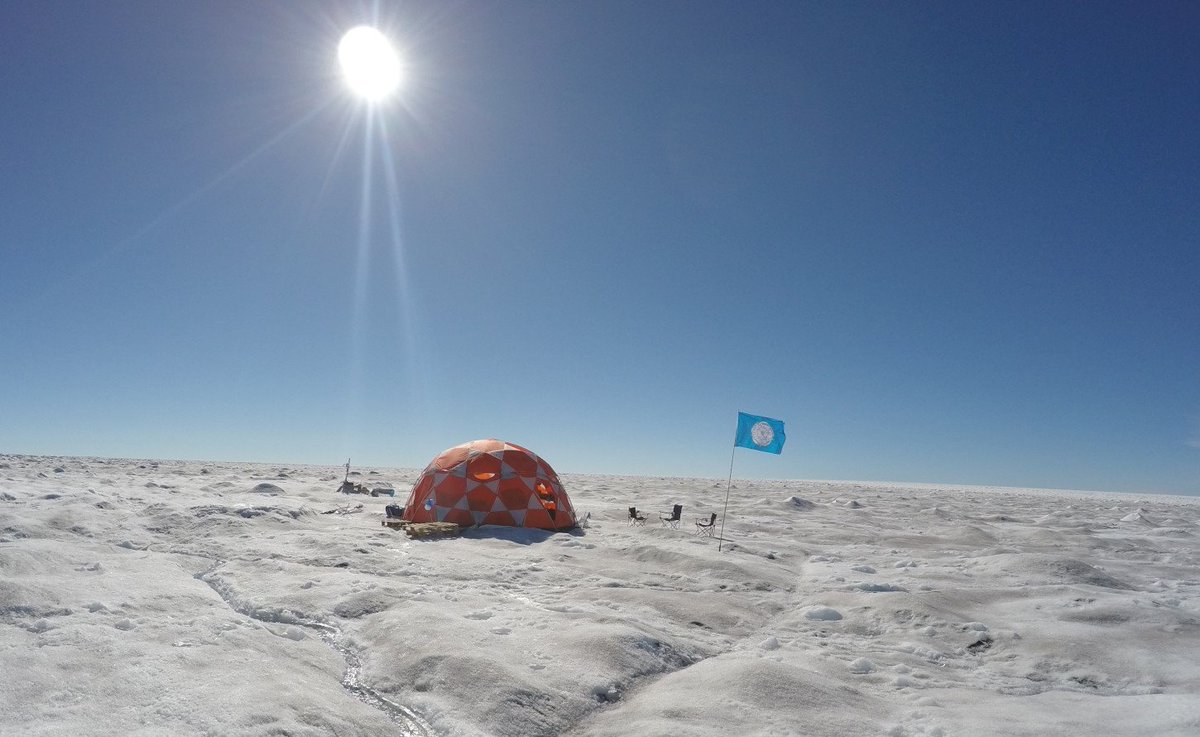Dark ice report from Greenland

Professor Liane Benning and Dr Jim McQuaid from the School of Earth and Environment told BBC weather presenter Keeley Donovan about their experiences researching ice melt in Greenland on The Weather Show on BBC Radio Leeds (13 August).
The researchers, who were taking part in the Black and Bloom project on the Greenland ice sheet, which brings together scientists from multiple disciplines and academic institutions, are working to find out why the snow and ice there is getting darker, and how it affects climate change.
The collaborative project, which has seen scientists reporting back through blogs and social media, has allowed a more complex picture to be built up about the causes behind “dirty snow”, which melts more quickly because the albedo – the reflectiveness of the snow – is reduced.
Keeley Donovan, who was sitting in for regular presenter Paul Hudson, got some insights about camp life on the ice sheet, including how the scientists managed to sleep under conditions of perpetual daylight and the lifeline provided by satellite phone, which included Jim McQuaid ordering a Yorkshire flag (pictured) to mark Yorkshire Day on 1 August.
While the pair have yet to fully assess their results, there is already a striking indication of the bio albedo effect, which is the role algal blooms play in the rapid ice melt (previously thought to be due to black carbon – soot – from air pollution).
“Algal blooms produce a pigment which darkens the surface. You have melting in the summertime, they bloom and produce more pigment and that increases the melting, so it’s almost like a runaway effect” said Liane Benning.
The interview can be heard here and begins nine minutes in to the programme.
